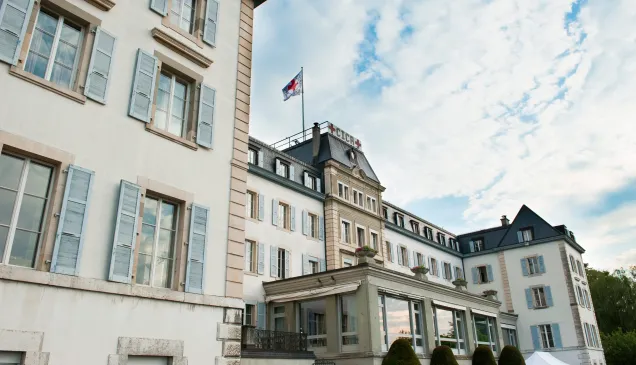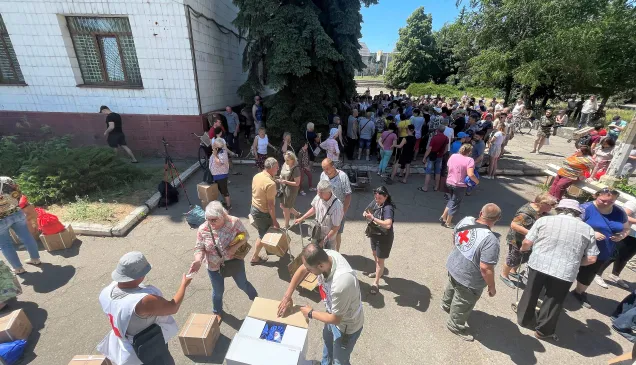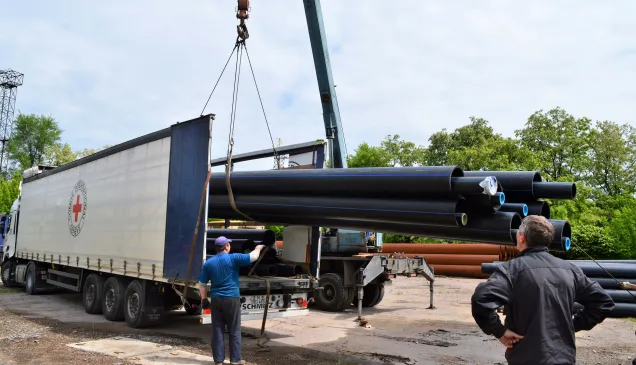Ukraine: A birthday and a message of hope
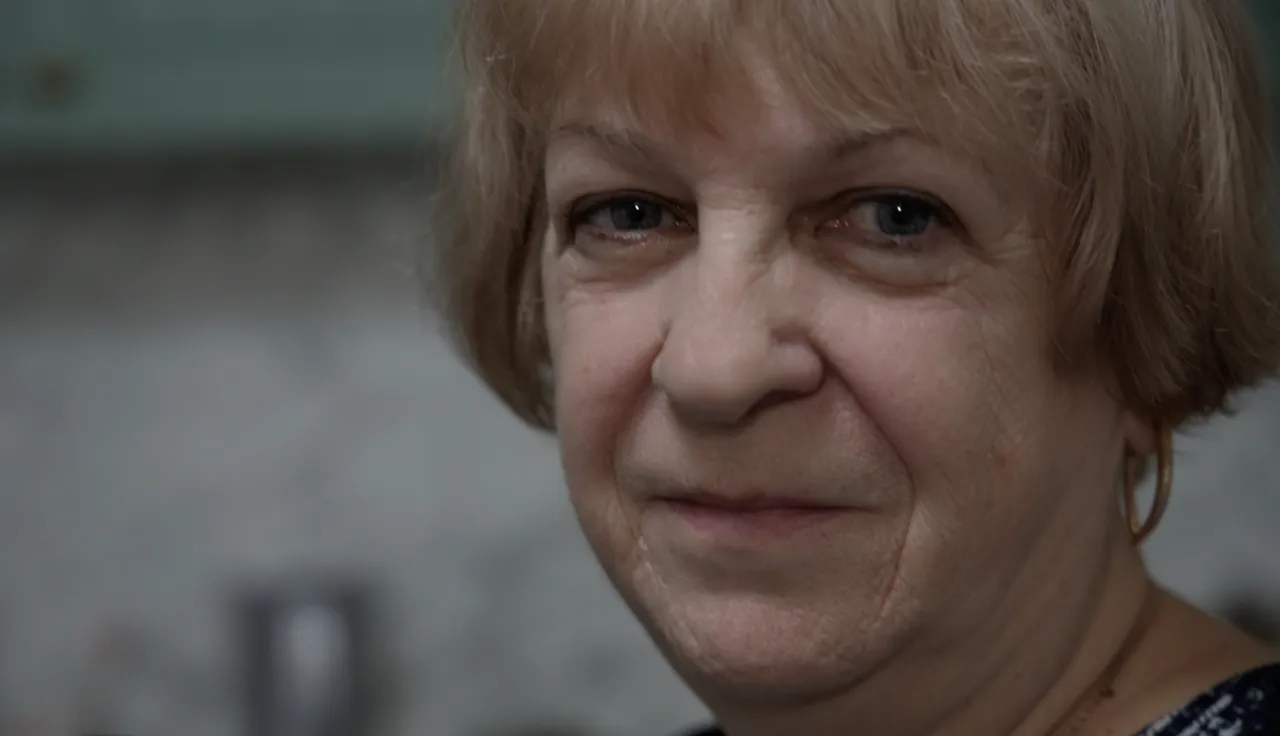
For many families, waiting to hear from a loved one held as a prisoner of war can be agonising. Sometimes, we can play a part in delivering the news that they’ve long been seeking.
When Olha calls someone to tell them she has a message from a family member held as a prisoner of war, she starts like this.
“Hello. My name is Olha. I am a representative of the International Committee of the Red Cross. I am calling to tell you that you have received a greeting from your loved one.”
Olha is part of a team in Kyiv who helps families separated by armed conflict to find answers about loved ones who are unaccounted for – helping provide answers and restore contact, when it’s possible to do so.
In the armed conflict between Russia and Ukraine, millions of people have been displaced, and millions more forced to flee across international borders. The ongoing hostilities and shifting frontlines tear families apart.
As of May 2025, Olha’s team, like many others in the ICRC, are working on a caseload of 126,000 people whose fate or whereabouts remains unknown.
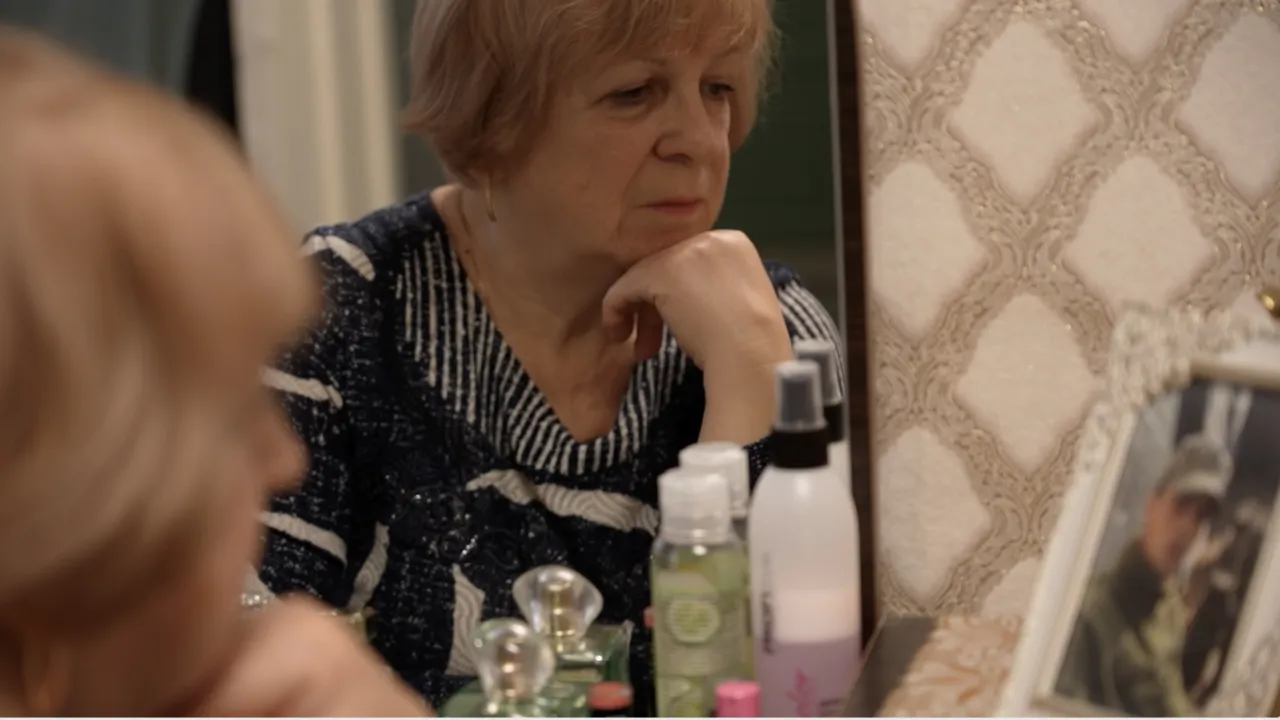
Even when families do receive news – like confirmation that their loved one is being held as a prisoner of war –concern for their wellbeing remains. The desire to hear from those that people care about never fades.
That’s why those moments when we are able to share an actual message – not just the fact that someone is alive – are so precious.
It is states that have the obligation and power to grant us access to prisoners of war. When they do, one of our tasks during those visits is to collect verbal messages from prisoners that can then be shared with their families.
This is how Olha happened to call Iryna on the day of her son’s birthday.
Iryna had been displaced by ongoing hostilities and hadn’t seen her son – a soldier – in three years. He was later confirmed as a prisoner of war.
“I was sitting, looking at a photo of my son and talking to him,” Iryna said. “And suddenly the phone rang. And you told me that my son had been visited on his birthday and that he had sent me his birthday greetings.”
Olha remembers a lot of calls and messages on that day – but Iryna’s stands out. She remembers crying together with Iryna over the phone.
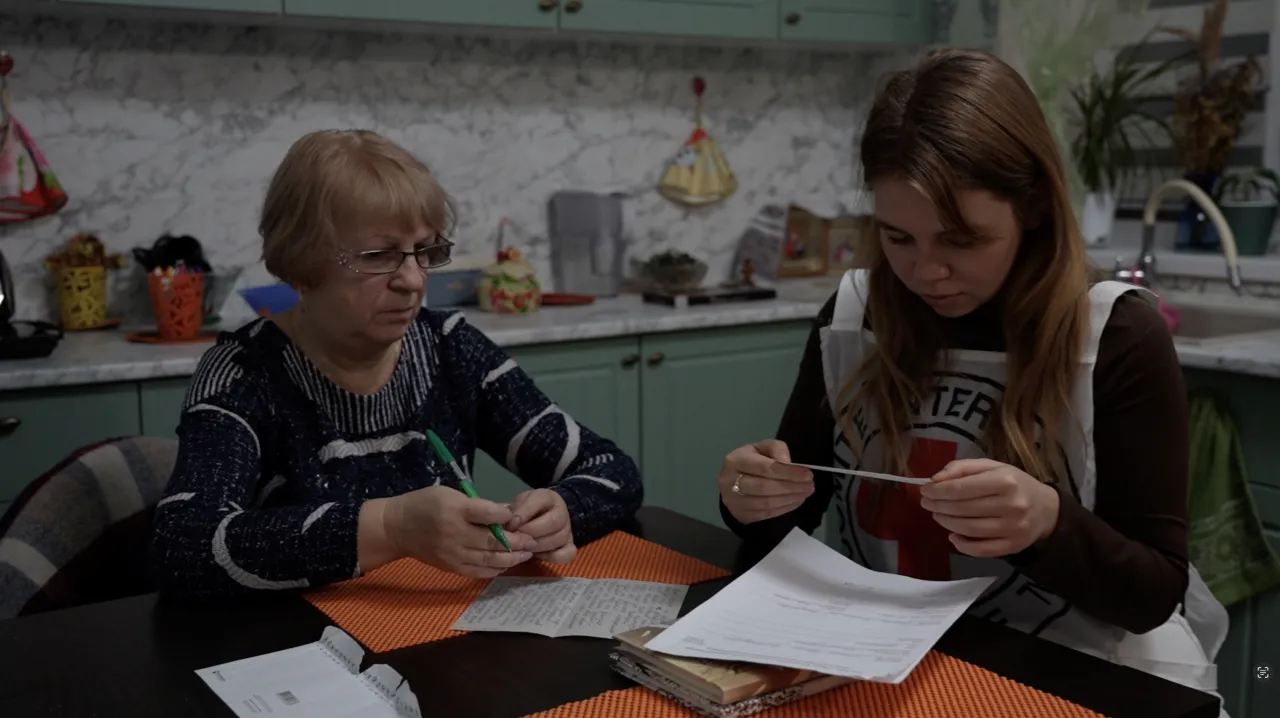
“I didn’t sleep the whole night,” said Iryna. “I laughed and cried and danced and kissed the photos. But when you said that you would pass a message to my son, well, I was overcome with emotion.”
A full visit to a prisoner of war camp can take days, even weeks. Sometimes, this allows us for us to share a message from a prisoner to their family and then share a message back in reply within the same visit.
On her son’s birthday, Iryna had this opportunity.
“I was overcome with emotion. It was only later that I wondered why I had said this, why I hadn’t said that, that I was proud of him, my son. I just said, ‘I love you, I love you, I’m waiting, I’m waiting, I’m waiting. That was all I could say at that emotional moment,” Iryna told us.
“And the words I wanted to say to him were, ‘hold on, my son, hold on. You are a brave man. Everything will be over soon and I will hug you, meet you at the doorstep, embrace you and never let you go, my son. Never.’”
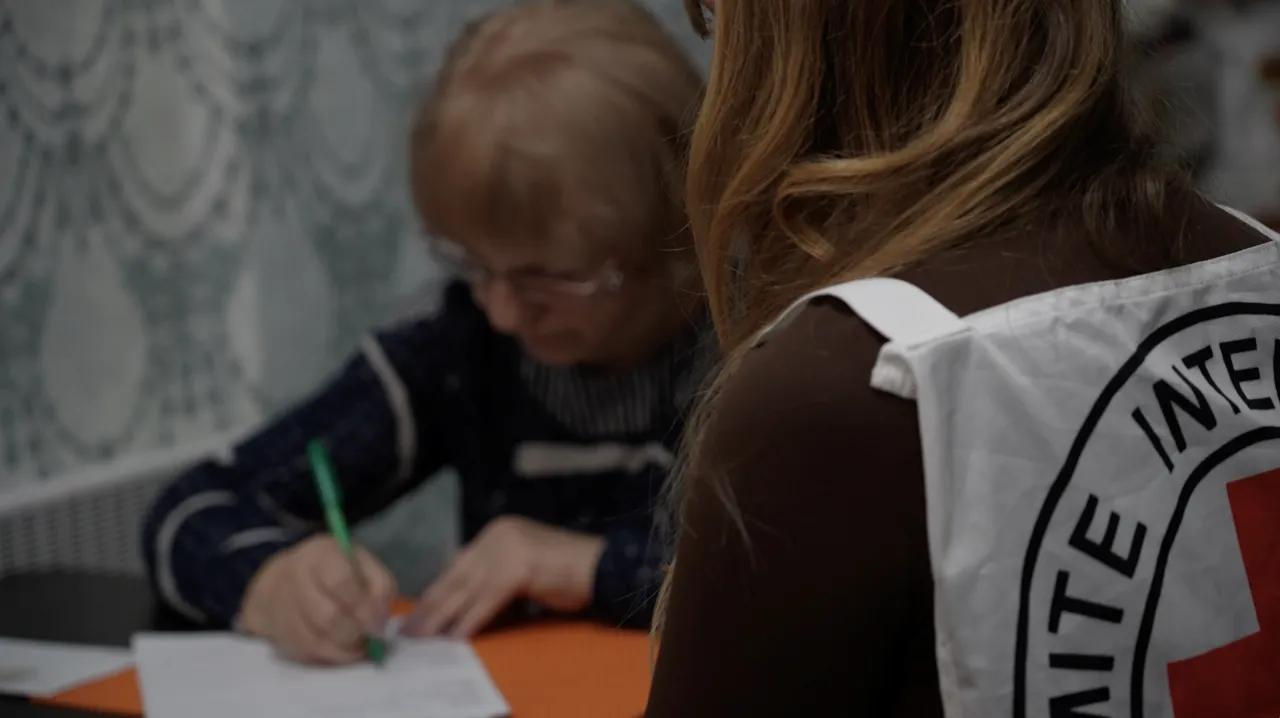
There are many other families who have been waiting for news from a loved one, even just to know if they are alive and well.
Since the escalation of armed conflict between Russia and Ukraine in 2022, as of May 2025, we’ve helped 13,750 people receive answers to their questions on the fate or whereabouts of loved ones unaccounted for.
This work is a complex effort: involving 50 Red Cross Red Crescent societies and 28 ICRC delegations across the globe.
The message that Olha shared with Iryna was just one among 16,800 personal messages we’ve exchanged between prisoners of war and their families as of May this year.
A simple message can mean the world to those who receive them. This is why we continue striving to have access to all prisoners of war, wherever they are held, to be able to bring news to more families.
Every month, the ICRC community hotline in Kyiv receives thousands of calls – mostly from those seeking news of loved ones. We talk to people living this reality every day.
Globally, we’ve received around 425,000 calls, emails or visits from families seeking answers since the escalation of the armed conflict in 2022. Many people contact us repeatedly, representing the urgent desire for news.
For those still seeking, still waiting, our work continues.
Note for families
For those missing a loved one in relation to the armed conflict between Russia and Ukraine, you can call our hotline in Ukraine on 0 800 300 155 or in Russia on 8 800 600 92 69.

